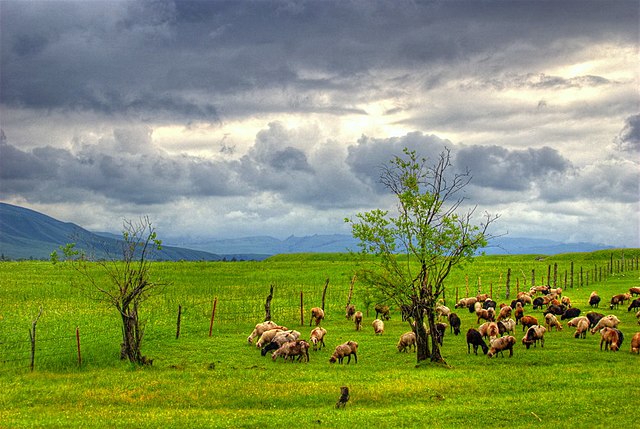
On Wednesday, 21 July 2021, Thammasat University students are cordially invited to join a free webinar on Family De-planning: The coercive campaign to drive down indigenous birth-rates in Xinjiang.
The Thammasat University Library collection includes several books about different aspects of life in Xinjiang, officially the Xinjiang Uygur Autonomous Region (XUAR), an autonomous region located in the northwest of the of the People’s Republic of China (PRC) close to Central Asia.
The event is presented by The Centre for Contemporary Chinese Studies (CCCS) at the University of Melbourne, Australia.
As the CCCS website indicates,
CCCS was established in the Asia Institute in the Faculty of Arts in 2013, with a focus on research and engagement. The Centre plays a vital role in shaping an Australian approach to the study of contemporary China and serves as a significant source of research-based information on China, Chinese societies and Chinese economies in the 21st century.
Mission
CCCS’s mission is to facilitate high-quality research, teaching and engagement at the University of Melbourne that furthers our understanding of China’s ongoing transformation and the impacts within and beyond China. The Centre enhances Australia’s bilateral partnerships with top Chinese universities and acts as a hub for contemporary China studies in Melbourne.
CCCS objectives
In pursuing the CCCS mission, our specific objectives are:
Objective 1: To lead Chinese Studies at the University of Melbourne by drawing together and highlighting the China-related expertise of colleagues from the Asia Institute, the Faculty of Arts, and across the University. CCCS is first and foremost a platform for encouraging and facilitating the University’s China-related research, teaching, and engagement.
Objective 2: To actively collaborate with leading Chinese and international institutions, conducting excellent interdisciplinary research, research training, teaching and engagement activities, and supporting the development of new China-related initiatives.
Objective 3: To provide strategic support to the University by actively assisting with the development and realisation of the Engaging with China Plan 2020-2024 and other strategies aimed at enhanced engagement with China and the Asia-Pacific region.
The webinar will begin at 8:30pm Bangkok time.
For further information or with any questions, kindly write to the following email address:
china-centre@unimelb.edu.au
The webinar webpage notes:
Family De-planning: The coercive campaign to drive down indigenous birth-rates in Xinjiang
Professor James Leibold and Nathan Ruser provide new evidence documenting the effectiveness of the Chinese government’s systematic efforts to reduce the size of the indigenous population of Xinjiang through a range of coercive birth-control policies. Using the Chinese government’s own publicly available statistics, they have compiled a dataset of county-level birth-rates (natality) across 2011-2019. They then marshal this data to analyse trends across nationalities and spatial regions in Xinjiang, before and after the 2016 crackdown, and comparatively with other countries as recorded in the UN population dataset. Finally, they place these statistics in context through analysis of county-level implementation documents and other official Chinese language sources which have been previously overlooked.
Beginning in April 2017, Chinese Communist Party authorities in Xinjiang launched a series of “strike-hard” campaigns against “illegal births” with the explicit aim to “reduce and stabilise fertility at a moderate level” and decrease the birth-rate in southern Xinjiang by at least 4 children per thousand people from 2016 levels. This followed years of preferential exceptions from family-planning rules for indigenous nationalities. The crackdown has led to an unprecedented and precipitous drop in official birth-rates in Xinjiang since 2017. The birth-rate across the region fell by nearly half (48.74 percent) in the two years between 2017 and 2019. The largest declines have been in counties where Uyghur and other indigenous communities are concentrated. Across counties that are majority-indigenous the birth-rate fell, on average, by 43.7 percent in a single year between 2017 and 2018. The birth-rate in counties with a 90 percent or greater indigenous population declined by 56.5 percent, on average, in that same year.
Presenter
Professor James Leibold is Professor of Politics and Asian studies at La Trobe University in Melbourne, Australia, and Head of the Department of Politics, Media and Philosophy. He is the author of over fifty peer-reviewed books, articles, research reports and book chapters on minzu (ethnic/nationality), race and nationalism in modern China.
He is also currently a non-resident Senior Fellow at the Australian Strategic Policy Institute (ASPI) in Canberra where he leads the US State Department funded “Xinjiang Data Project,” and a Council Member of the Asian Studies Association of Australia.

A report posted on the website of the Australian Strategic Policy Institute (ASPI) offers background data and historical context for understanding the coercive campaign to drive down indigenous birth-rates in Xinjiang.
As its website explains,
ASPI is an independent, non-partisan think tank that produces expert and timely advice for Australian and global leaders. ASPI generates new ideas for policy makers, allowing them to make better-informed decisions. ASPI is one of the most authoritative and widely quoted contributors to public discussion of strategic policy issues in the Indo-Pacific region and a recognised and authoritative Australian voice in international discussion on strategic, national security, cyber, technology and foreign interference issues.
ASPI was established by the Australian Government in 2001 and is partially funded by the Department of Defence with other sources of revenue including sponsorship, commissioned tasks and event registration fees. Details of our funding sources are available
The report details how cultural erasure has taken place:
Tracing the destruction of Uyghur and Islamic spaces in Xinjiang
This report is supported by a companion website, the Xinjiang Data Project.
What’s the problem?
The Chinese Government has embarked on a systematic and intentional campaign to rewrite the cultural heritage of the Xinjiang Uyghur Autonomous Region (XUAR). It’s seeking to erode and redefine the culture of the Uyghurs and other Turkic-speaking communities—stripping away any Islamic, transnational or autonomous elements—in order to render those indigenous cultural traditions subservient to the ‘Chinese nation’.
Using satellite imagery, we estimate that approximately 16,000 mosques in Xinjiang (65% of the total) have been destroyed or damaged as a result of government policies, mostly since 2017. An estimated 8,500 have been demolished outright, and, for the most part, the land on which those razed mosques once sat remains vacant. A further 30% of important Islamic sacred sites (shrines, cemeteries and pilgrimage routes, including many protected under Chinese law) have been demolished across Xinjiang, mostly since 2017, and an additional 28% have been damaged or altered in some way.
Alongside other coercive efforts to re-engineer Uyghur social and cultural life by transforming or eliminating Uyghurs’ language, music, homes and even diets,1 the Chinese Government’s policies are actively erasing and altering key elements of their tangible cultural heritage.
Many international organisations and foreign governments have turned a blind eye. The UN Educational, Scientific and Cultural Organization (UNESCO) and the International Council on Monuments and Sites (ICOMOS) have remained silent in the face of mounting evidence of cultural destruction in Xinjiang. Muslim-majority countries, in particular, have failed to challenge the Chinese Government over its efforts to domesticate, sinicise and separate Uyghur culture from the wider Islamic world.
What’s the solution?
The Chinese Government must abide by Article 4 of China’s Constitution and allow the indigenous communities of Xinjiang to preserve their own cultural heritage and uphold the freedom of religious belief outlined in Article 36. It must abide by the autonomous rights of minority communities to protect their own cultural heritage under the 1984 Law on Regional Ethnic Autonomy.
UNESCO and ICOMOS should immediately investigate the state of Uyghur and Islamic cultural heritage in Xinjiang and, if the Chinese Government is found to be in violation of the spirit of both organisations, it should be appropriately sanctioned.
Governments throughout the world must speak out and pressure the Chinese Government to end its campaign of cultural erasure in Xinjiang, and consider sanctions or even the boycotting of major cultural events held in China, including sporting events such as the 2022 Winter Olympic Games.
The UN must act on the September 2020 recommendation by a global coalition of 321 civil society groups from 60 countries to urgently create an independent international mechanism to address the Chinese Government’s human rights violations, including in Xinjiang.

(All images courtesy of Wikimedia Commons)
